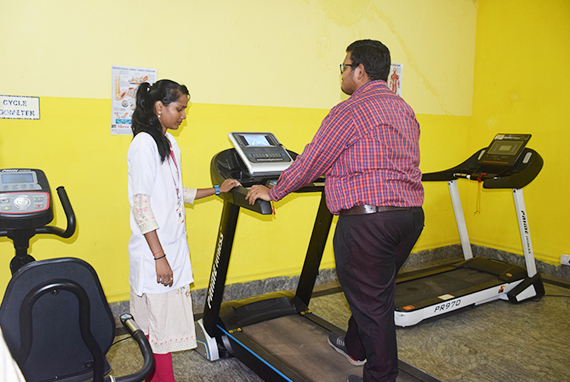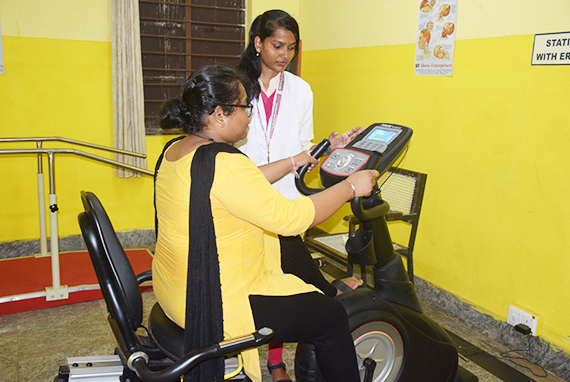At Margdarsi, we understand the diverse challenges that can impact well-being. Whether it's managing your weight, addressing musculoskeletal discomfort, or ensuring your child's optimal health, we are here to support you every step of the way. That's why, alongside our specialized Obesity Clinic and dedicated Musculoskeletal Disorder Clinic, we offer our comprehensive Pediatric Hearing Clinic.
Health Risks:Obesity is linked to various health risks, including heart disease, diabetes, and high blood pressure.
Decreased Mobility:Carrying excess weight can limit mobility, making everyday activities more challenging.
Emotional Toll:Obesity can take a toll on mental health, affecting confidence and self-esteem.
Workplace Struggles:Obesity might impact professional life, affecting performance and career growth.
Social Challenges:Dealing with obesity can lead to social challenges, affecting relationships and social interactions.

Personalized Approach: Margdarsi believes in understanding your unique needs. Our approach is tailored to your specific obesity challenges, ensuring a customized and effective treatment plan.
Expert Guidance:Our team consists of skilled professionals dedicated to guiding you through the journey of overcoming obesity. With us, you're in expert hands every step of the way.
Holistic Care: Margdarsi embraces a holistic approach to obesity treatment. We address the root causes, providing comprehensive care for your overall well-being.
Modern and Effective Treatments: Stay ahead with Margdarsi's cutting-edge therapies designed to empower you on your path to overcoming obesity.
Developmental Delays: Untreated obesity can lead to various health risks, including diabetes, heart disease, and joint problems.
Social Isolation: Carrying excess weight can limit your mobility, making everyday activities more challenging.
Academic Struggles: Obesity can take a toll on your mental health, affecting your confidence and self-esteem.
Emotional Impact:Avoid missing out on opportunities for personal and professional growth by addressing obesity head-on. Margdarsi is here to guide you towards a healthier and more fulfilling life.
Personalized Approach:Margdarsi believes in understanding your unique needs. We tailor our therapies to suit your specific obesity challenges, ensuring a customized and effective treatment plan.
Experienced Professionals:Our team comprises skilled professionals dedicated to guiding you through the journey of overcoming obesity. With us, you're in expert hands every step of the way.
Holistic Care:Margdarsi embraces a holistic approach to obesity therapies. We address the root causes, providing comprehensive care for your overall well-being.
Modern and Effective Treatments:Stay ahead with Margdarsi's cutting-edge therapies designed to empower you on your path to overcoming obesity.
Initial Assessment: We begin by understanding your unique challenges and needs.
Tailored Therapies: Your treatment plan is personalized to ensure it meets your specific obesity requirements.
Supportive Guidance:Margdarsi provides constant support and guidance to help you navigate the journey of overcoming obesity successfully.
Join the ranks of our satisfied customers who found success at Margdarsi. Their stories reinforce our position as the best Obesity clinic in Odisha. Example: Ravi, once weighed down by obesity, now embraces a healthier life, thanks to Margdarsi. His transformative journey speaks volumes about our commitment to your well-being.
Margdarsi – your trusted partner for a life of wellness. Book your consultation now and experience the best Obesity therapies in Odisha. Because when it comes to your well-being, Margdarsi is the solution – the best Obesity Clinic in Odisha.

Book Your Rs 500 Consultation: Take The First Step Towards A Healthier And Happier Life. Book Your Consultation At Margdarsi Today And Embark On Your Journey To A Leaner You.
Margdarsi offers personalized treatments tailored to your specific obesity challenges.
Our experienced professionals provide expert guidance and support throughout your journey to overcoming obesity.
Successfully managing obesity can lead to improved overall health and well-being.
Shedding excess weight can improve mobility, making daily activities more manageable.
Margdarsi's therapies aim at promoting emotional well-being, empowering you to navigate life with confidence.
Our clinic embraces a holistic approach, addressing the root causes of obesity for comprehensive care.
Avail top-notch obesity treatment for just Rs 500, making quality care affordable and accessible.
Join the ranks of our satisfied customers who have witnessed life-changing improvements in their overall well-being.